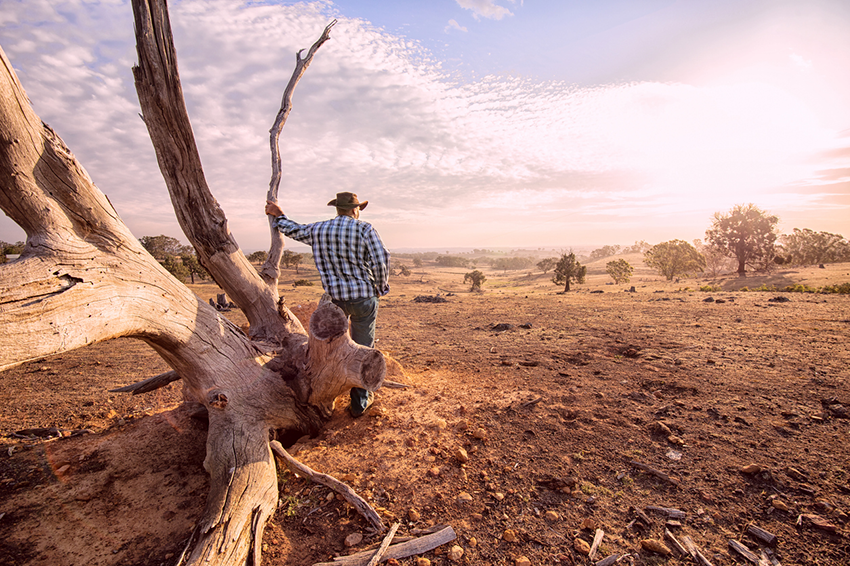30 September 2024 – Tomorrow marks the official start of the 2024-25 bush fire season, as high fuel loads present challenges for fire agencies across the state.
The NSW Rural Fire Service (RFS) is prepared for a predicted warm summer, with firefighters having responded to more than 1,600 bush and grass fires across the state since 1 July.
Minister for Emergency Services Jihad Dib joined Commissioner of the RFS Rob Rogers for a helicopter flight to survey some of Sydney’s most at-risk suburbs today.
“We have already seen dangerous fire conditions in NSW, with recent hot, dry and windy weather rapidly drying out bush and grass land areas, increasing the fire risk,” noted Minister for Emergency Services Jihad Dib. “With high temperatures forecast this summer, we cannot be complacent. Everyone needs to take the time now to make sure they understand their risk, discuss their Bush Fire Survival Plan with their family and download the Hazards Near Me app.”
“I thank all our RFS volunteers and emergency service personnel for their work to protect communities across the state and encourage residents and landowners to do their part to prepare themselves, their families and properties.”
Taking off from Arcadia Rural Fire Brigade station, the Minister and Commissioner inspected recent hazard reduction work undertaken in the Hornsby area, as fire agencies and land managers continue work to reduce fuel loads for the warm months ahead.
“Consecutive years of wet weather have fuelled growth of vegetation like grass lands, particularly west of the Great Dividing Range. Grass fires can be especially dangerous because they start quickly and spread rapidly, destroying homes and stock,” said Commissioner of the RFS Rob Rogers after the inspection.
“Our firefighters are out on the ground doing everything they can to mitigate the risk of fire, but preparation is a shared responsibility, and we need property owners to do their part, too.
“There can never be a fire truck outside every home, so people need to have a plan in place if threatened by fire. Make sure your whole family knows whether you will stay and defend your home or will leave early – and if so, where you will go.”
The NSW Government has funded 100 additional hazard reduction crew members to conduct this important work.
RFS firefighters train and prepare year-round to respond to fire and other emergency incidents and with most of NSW now in the Bush Fire Danger Period (BFDP), it is important that the community prepares as well.
Residents are encouraged to take simple steps to lower their fire risk, including:
- Trim overhanging trees and shrubs.
- Mow grass and remove the cuttings and have a cleared area around your home.
- Remove material that can burn around your home, such as door mats, wood piles, mulch and flammable liquids.
- Clear and remove all debris and leaves from gutters surrounding your home.
- Prepare a sturdy hose or hoses that will reach around your home.
While some areas have already entered the Bush Fire Danger Period, the statutory bush fire season runs from 1 October 2024 to 31 March 2025.
NSW National Parks and Wildlife Service (NPWS) is also working hard to for the upcoming bushfire season.
“We are slashing and mowing areas of highest risk next to houses and other property and ensuring that our fire trails are cleared and available for firefighters in the event of bushfire,” said Naomi Stephens Executive Director NPWS Park Operations Coastal.
“Our trained firefighters are carrying out hazard reduction burning, where and when conditions allow, to reduce the risk and are ready to respond to bushfires to protect the community and the parks.”
If you’re planning to travel, especially over the holiday period, be aware of the risk of fast-moving grass fires. Before you leave, check the weather forecast and fire danger ratings for that area and have a plan to leave should a grass or bush fire take hold.
Bush Fire Survival Plans and information on preparing your property and family are available on the RFS website at www.rfs.nsw.gov.au. Residents can stay up to date on fires in their area using the RFS website, the Hazards Near Me app, listening to your local radio station, or by calling the RFS Bush Fire Information Line on 1800 679 737.












